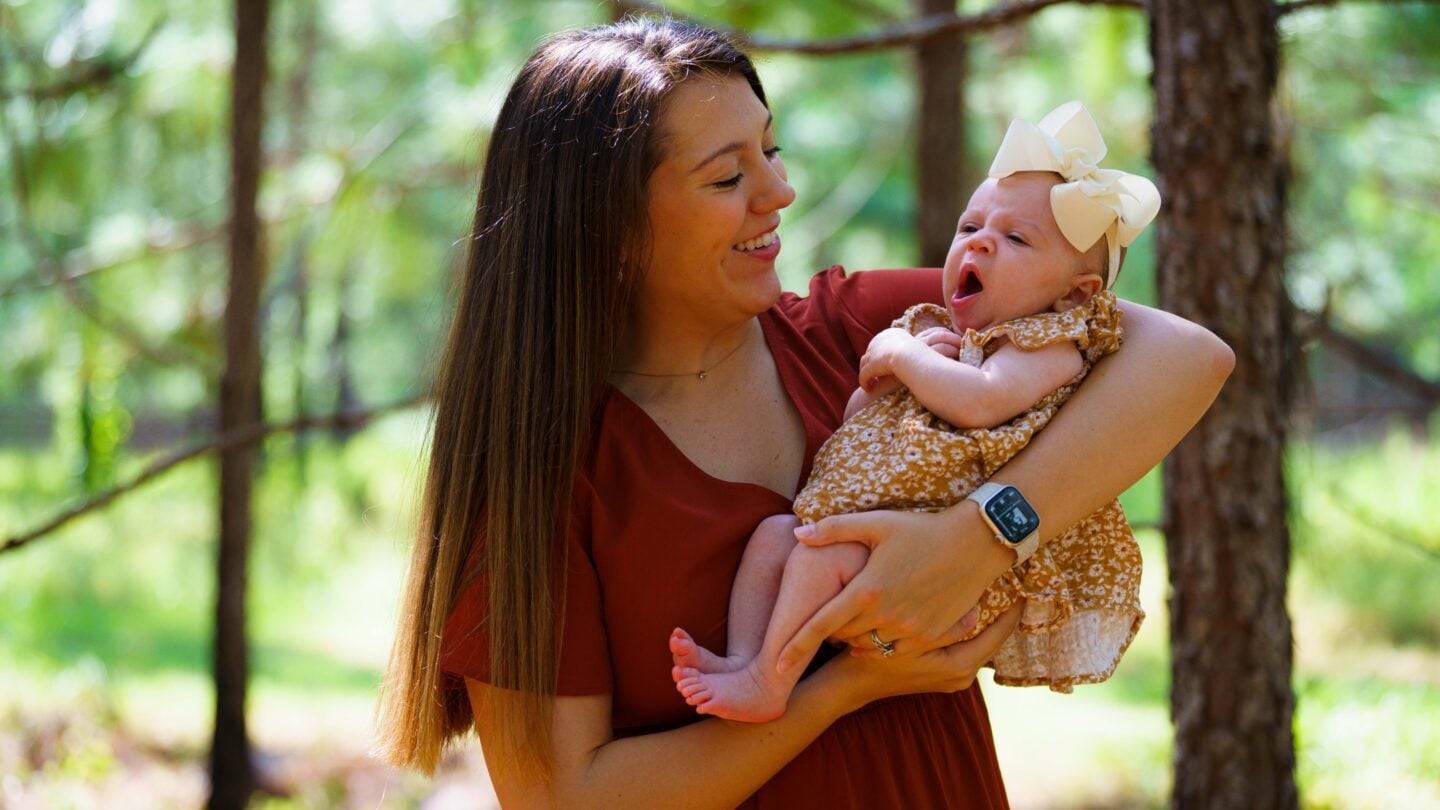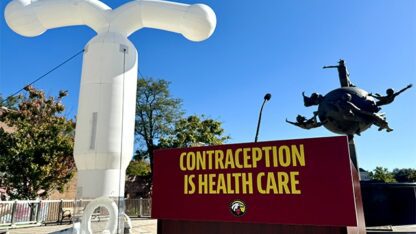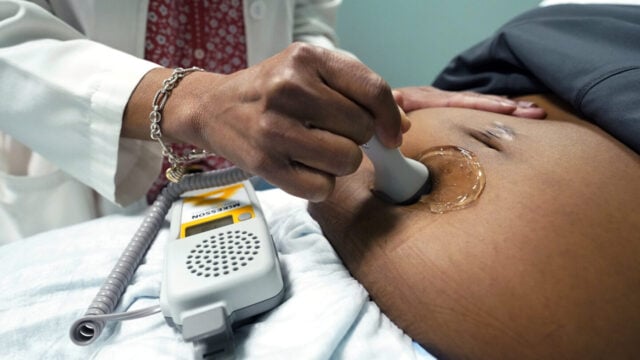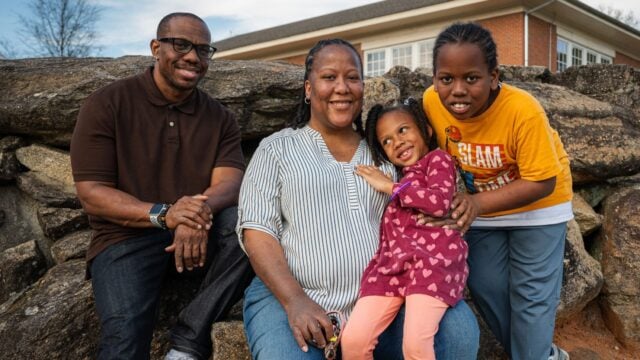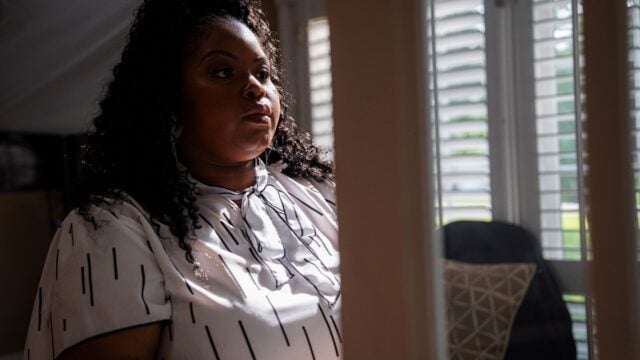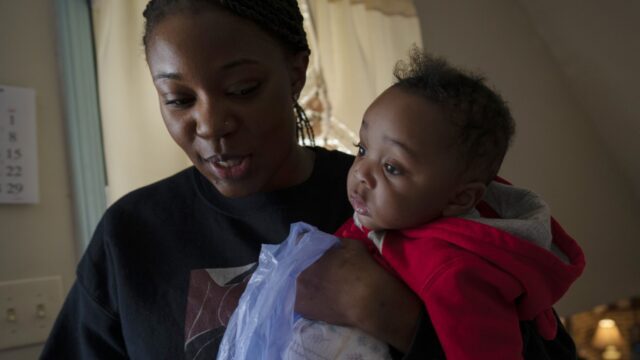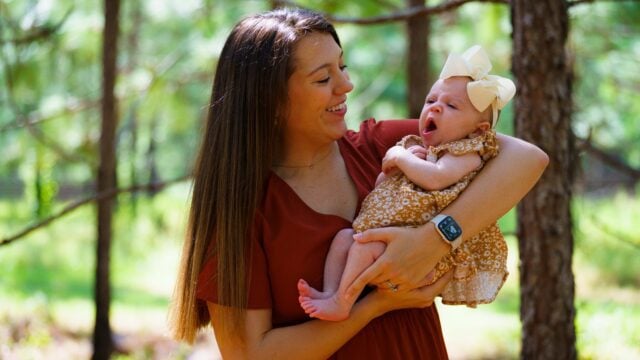About an hour and a half east of Macon at a white-shingled house at the end of a long gravel driveway bookended by dense stands of longleaf pines, baby Hollyn is just waking up.
“Aw. You stretching? She took a long nap,” Hollyn’s mom Hannah Cabe said, patting the baby’s back.
A wooden sign a family friend carved hangs above the crib spelling out Hollyn’s name in dusty rose-painted letters.
Cabe, 25, lays Hollyn on a changing table and grabs a new diaper.
“I’m going to change her. She usually gets real smiley. Are you a little hungry, too?” she said to the baby. “You are?”
Cabe grew up in this part of Georgia. So, when she became pregnant with Hollyn, she knew it would mean a lot of driving back and forth to prenatal appointments and when it was time to give birth.
The nearby Sandersville hospital where she was born no longer offers labor and delivery services. Now, the closest labor and delivery hospitals are all roughly an hour away.
“For labor and delivery, you’re looking at Macon, Augusta, Milledgeville or Dublin. And those are all between 45 minutes to 1 hour and 15 minutes from here,” Cabe said.
In June, Cabe had her baby at Atrium Health Navicent Medical Center, part of Central Georgia Health System, in Macon, where she also got prenatal care.
“I was having contractions about 4 to 5 minutes apart and they were getting more intense. I remember saying while we were coming through town, I have never wanted a labor and delivery unit here in town more than I do right now,” Cabe said.
“I wouldn’t say my husband was freaking out, but he definitely was getting nervous. He kept saying, I don’t want you to have this baby in the truck.”
Cabe lives in what researchers call a maternity care desert, defined as a county without OB-GYN providers or childbirth facilities. More than 40% of Georgia counties don’t have childbirth facilities or OB-GYN providers, according to the March of Dimes — and the number is growing.
The state has seen a wave of hospital closures over the last decade and rural areas have been hard hit.
It’s a national problem.
“About 60% of maternity care deserts nationally are in counties that are classified as rural,” said the Atlanta March of Dimes’ Tamara Mason. “So, if you are in a maternity care desert, you have a 13% increased chance of having a baby born preterm.”
Middle Georgia has some of the worst rates of pregnancy-related death in the state. Policymakers say limited access to health care is one of the major reasons.

A holistic approach beyond maternity care
Dr. Keisha Reneé Callins knocks on an exam room door before checking on a patient at her clinic in Jeffersonville, about an hour southeast of Macon. The clinic is a one-story brick building set back off a two-lane highway.
Callins is the only obstetrician-gynecologist in Twiggs County.
“And so we do have patients who are driving an hour or sometimes even more to be able to get services here,” Callins said.
The nonprofit Community Health Care Systems clinic offers primary care and gynecologic services regardless of insurance or ability to pay. It’s what’s known as a federally qualified health center.
Callins, who is also a professor at Mercer University School of Medicine, said she sees her OB-GYN practice as a way to also address patients’ other health needs.
“Because once they’re here, even though they may be coming for something women’s health [related], if there are other things that have not already been addressed, then we can make those referrals to care and really improve their access,” Callins said. “There’s just so much we can do just by that entry point visit.”
She said she sees many patients who come to her clinic after not seeing a doctor for months, sometimes years.
Callins is working to make accessing health care in the county easier.
A few years ago, in partnership with a coalition called the Live Well Twiggs Collaborative, Callins spearheaded the launch of an affiliated health clinic at a public school across the street from Community Health Care Systems. The school-based clinic is staffed by a nurse practitioner and open to teachers, staff, students and their family members. This year she’s opening a community event space where she’s planning to offer health-education classes to residents.
“I feel like we’re building a trifecta,” she said.
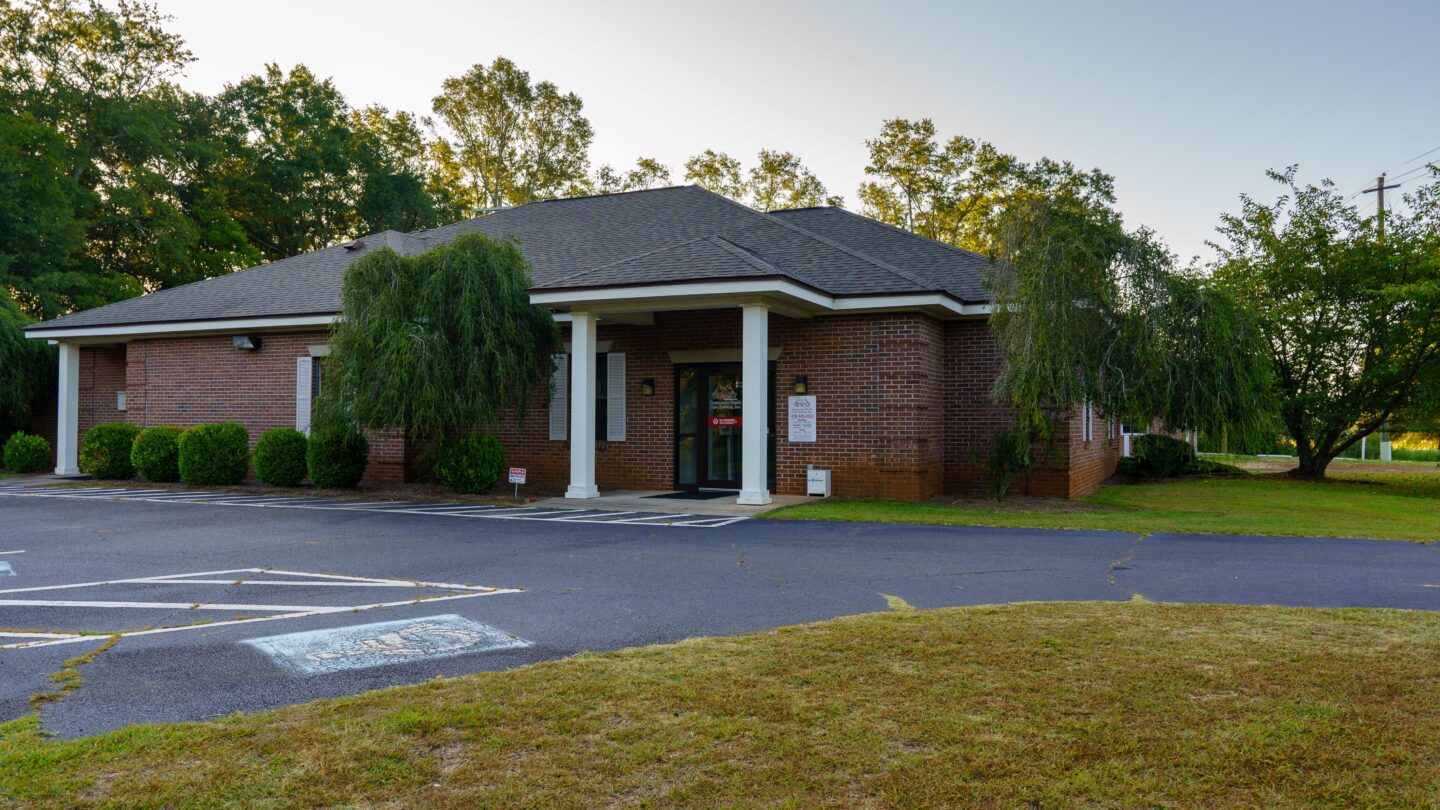
Callins’ approach may already be showing some success.
“For a county that used to have a health status score of 159, which is the bottom of the list of counties, our most recent health status score is 112, and that’s after only about four years,” Callins said. “And so just a commitment to putting all hands on deck has really moved things in the right direction. And I think people here are proud. We’re not at the bottom anymore.”

The next generation of rural physicians
An hour from the clinic, Hannah Cabe sits on the couch feeding baby Hollyn.
She said she wants to do something similar to what Dr. Callins has done as an OB-GYN in Twiggs County. Cabe is a medical student in her third year at Mercer University School of Medicine. This year, she’s completing an OB-GYN rotation at the same Macon hospital where she had Hollyn.
And after she graduates, she said, she plans to practice medicine close to home in Washington County.
“Being from here brings a different sense of empathy for patients. You know, to be able to say, I understand it’s frustrating having to travel over an hour to see a specialist. I understand the limitations that that brings as far as transportation and gas and finding childcare,” Cabe said. “I think that it just speaks volumes to patients.”
She is hoping that bringing firsthand experience to her rural practice will help improve healthcare quality and access in her community.
This story is part of our series Missing Moms: Inside Georgia’s Maternal Health Crisis. Jess Mador’s reporting is part of a fellowship with the Association of Health Care Journalists supported by The Commonwealth Fund. It is produced in partnership with the Georgia Health Initiative.
